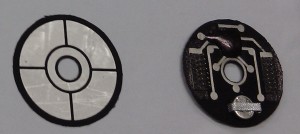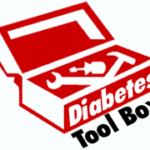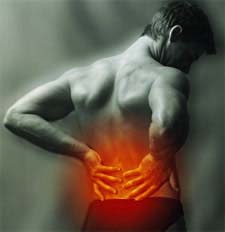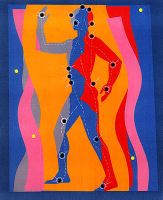 Approximately 30% of people over 65 years of age living in the community fall each year.
Approximately 30% of people over 65 years of age living in the community fall each year.
This Cochrane review updates what we know. Continue reading Reducing the rate and risk of falling
 Approximately 30% of people over 65 years of age living in the community fall each year.
Approximately 30% of people over 65 years of age living in the community fall each year.
This Cochrane review updates what we know. Continue reading Reducing the rate and risk of falling
 Fast Company reports that a new system links to a readout and shows how much electrical activity the needles are stimulating in a patient’s muscles. Continue reading Smart acupuncture
Fast Company reports that a new system links to a readout and shows how much electrical activity the needles are stimulating in a patient’s muscles. Continue reading Smart acupuncture
 Dr. Robert Herron, an independent researcher, and director of the Center for Health Systems Analysis in Quebec, Canada, retrospectively assessed government payments to physicians for treating the TM and no-treatment (NT) groups. Continue reading Cost effective Transcendental Meditation
Dr. Robert Herron, an independent researcher, and director of the Center for Health Systems Analysis in Quebec, Canada, retrospectively assessed government payments to physicians for treating the TM and no-treatment (NT) groups. Continue reading Cost effective Transcendental Meditation
 Researchers at Harvard Medical School, in Boston, collected information from pain physicians and referral physicians who manage the care of patients in pain. Continue reading Physicians rate acupuncture for pain management
Researchers at Harvard Medical School, in Boston, collected information from pain physicians and referral physicians who manage the care of patients in pain. Continue reading Physicians rate acupuncture for pain management
 Lifestyle changes may reduce cardiovascular risk and the risk of diabetes mellitus.
Lifestyle changes may reduce cardiovascular risk and the risk of diabetes mellitus.
Researchers at Umea University in Sweden studied the long term cost-effectiveness of a lifestyle educational program. Continue reading Cost-effectiveness of lifestyle changes in diabetes patients
 Falls prevention programs reduce the risk in older people. But are they cost-effective?
Falls prevention programs reduce the risk in older people. But are they cost-effective?
Researchers in the UK evaluated the fiscal benefits. Continue reading Cost-effectiveness: Falls prevention in high-risk elderly
 Researchers from University of Warwick, in Coventry, UK estimated the cost effectiveness of a group cognitive behavioral treatment in people with low-back pain treated in primary care. Continue reading Cognitive behavioral treatment for low back pain
Researchers from University of Warwick, in Coventry, UK estimated the cost effectiveness of a group cognitive behavioral treatment in people with low-back pain treated in primary care. Continue reading Cognitive behavioral treatment for low back pain
![]() Yes, according to researchers at Johns Hopkins University, in Baltimore, Maryland whose findings are based on a mathematical epidemiological model. Continue reading Is it cost-effective to prevent falls in the elderly?
Yes, according to researchers at Johns Hopkins University, in Baltimore, Maryland whose findings are based on a mathematical epidemiological model. Continue reading Is it cost-effective to prevent falls in the elderly?
 Researchers from the University of York, in the UK say it’s time to move on from asking if acupuncture is more effective than placebo. Continue reading Acupuncture: Clinically meaningful and cost-effective?
Researchers from the University of York, in the UK say it’s time to move on from asking if acupuncture is more effective than placebo. Continue reading Acupuncture: Clinically meaningful and cost-effective?
 Â Researchers from the University of Toronto, in Ontario reviewed the evidence. Continue reading Cost-effectiveness of natural supplements
 Researchers from the University of Toronto, in Ontario reviewed the evidence. Continue reading Cost-effectiveness of natural supplements
 In this study by researchers in Canada and the US, combining several treatments under the umbrella of naturopathic care was better than simply giving advice. Continue reading Cost-effective naturopathic care for low back pain
In this study by researchers in Canada and the US, combining several treatments under the umbrella of naturopathic care was better than simply giving advice. Continue reading Cost-effective naturopathic care for low back pain
 Researchers from Berlin’s Charité University Medical Centre report it’s worth the cost. Continue reading Cost-effectiveness of acupuncture for headache
Researchers from Berlin’s Charité University Medical Centre report it’s worth the cost. Continue reading Cost-effectiveness of acupuncture for headache
 This review by Professor Edzard Ernst from the Universities of Exeter & Plymouth in the UK is an outspoken negative critique. Continue reading Prof. Ernst’s negative view of chiropractic
This review by Professor Edzard Ernst from the Universities of Exeter & Plymouth in the UK is an outspoken negative critique. Continue reading Prof. Ernst’s negative view of chiropractic
 Reviewers from Duke University Medical Center in Durham, North Carolina conclude it’s better than sham acupuncture and even drugs. Continue reading Reviewing acupuncture to treat chronic headache
Reviewers from Duke University Medical Center in Durham, North Carolina conclude it’s better than sham acupuncture and even drugs. Continue reading Reviewing acupuncture to treat chronic headache
 In England, there were more than 31,000 operations to remove a section of the large intestine (colectomy) from 2004 to 2005. These patients average 13 to 26 days in the hospital.
In England, there were more than 31,000 operations to remove a section of the large intestine (colectomy) from 2004 to 2005. These patients average 13 to 26 days in the hospital.
Might chewing gum help? Continue reading Benefit of chewing gum on recovery from colon surgery
 Reminiscence music reportedly reduces the symptoms of depression in patients with dementia. It’s also effective for agitation and disruptive behavior in patients with dementia, and makes it easier to provide care.
Reminiscence music reportedly reduces the symptoms of depression in patients with dementia. It’s also effective for agitation and disruptive behavior in patients with dementia, and makes it easier to provide care.
Now, researchers from the Kaiser Foundation Hospital in Santa Clara, California report that music therapy makes fiscal sense as well. Continue reading Cost-effectiveness of music therapy in palliative care
 Researchers from Curtin University of Technology in Perth, Australia evaluated a milk product containing probiotics and prebiotics (Cupday Milk) on the incidence of diarrhea in children in daycare centers. Continue reading Probiotics reduce diarrhea in children
Researchers from Curtin University of Technology in Perth, Australia evaluated a milk product containing probiotics and prebiotics (Cupday Milk) on the incidence of diarrhea in children in daycare centers. Continue reading Probiotics reduce diarrhea in children
 Temporomandibular joint (TMJ) dysfunction involves face pain, clicking sounds, and limited movement of the jaw. About 33% of the population has it; fewer need treatment.
Temporomandibular joint (TMJ) dysfunction involves face pain, clicking sounds, and limited movement of the jaw. About 33% of the population has it; fewer need treatment.
This study suggests that cognitive behavioral therapy plus biofeedback is cost-effective treatment.
Continue reading Behavioral training and biofeedback to treat temporomandibular dysfunction
 In a previous entry it was reported that over 7 years, patients visiting chiropractors and other CAM-oriented primary care doctors had 60% fewer hospitalizations, 62% less outpatient surgery, and 85% lower pharmaceutical costs compared with total network HMO (health maintenance organization).
In a previous entry it was reported that over 7 years, patients visiting chiropractors and other CAM-oriented primary care doctors had 60% fewer hospitalizations, 62% less outpatient surgery, and 85% lower pharmaceutical costs compared with total network HMO (health maintenance organization).
These findings are important, but there were some questions, which lead researcher, Dr. Richard Sarnat, graciously agreed to address. Continue reading Follow-up: Reported cost-savings with CAM-oriented primary care
 Dr. Mark Moyad (photo) is Director of Preventive and Alternative Medicine at the University of Michigan Medical Center in Ann Arbor. His thoughts about the FDA’s plan to establish good manufacturing regulations for dietary supplements are published in Urology Times.
Dr. Mark Moyad (photo) is Director of Preventive and Alternative Medicine at the University of Michigan Medical Center in Ann Arbor. His thoughts about the FDA’s plan to establish good manufacturing regulations for dietary supplements are published in Urology Times.
He also looks to the next big issue that will confront the supplement industry.
Once you know the issues, you can play the role of the pharmaceutical executive and decide if your product “Best Prostate Health” should be withdrawn from the market. Continue reading The next big issue facing dietary supplements — You be the CEO